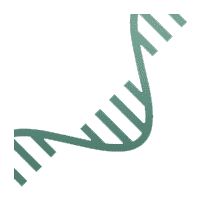Exosomal mRNA Sequencing
Exosomes are tiny membrane-bound extracellular vesicles produced in the endosomal compartment of most eukaryotic cells and can be found in abundance in many and perhaps all body fluids including blood, urine, cerebrospinal fluid. Among which, exosomal messenger RNA (mRNA) has been the subject of research for various biomedical applications due to its stability in body fluids and its biological regulatory functions. It is an important biomarker for disease diagnosis, prognosis, and therapeutic monitoring. Exosomal mRNA sequencing can be used to sense various mRNAs, including cancer cell mRNA, cancer exosomal mRNA, and even body fluid such as urinary exosomal mRNA from individuals with cancer.
Overview
Extracellular vesicles (EVs) are secreted from many types of cells into the extracellular space. The secretion of exosomes from cells is thought to depend on the formation of multivesicular bodies prior to the sorting of cargo contents. It has been shown that mRNA is present in exosomes secreted by mast cell lines. These exosomal mRNAs are transferable and functional in recipient cells, which sheds light on the exosomes as a novel mechanism of intercellular communication.
The innovation of large-scale, next-generation sequencing has exponentially increased knowledge of exosomal RNA biology, with regard to the diversity, abundance, and function of various exosomal RNA molecules. CD Genomics provides high-throughput sequencing services to quickly and efficiently obtain the global information of exosomal mRNAs. Our technologies at single-base resolution allow for all types of exosomal RNA detection from very small amounts of cellular materials. And the exosomal mRNA sequencing service can not only help you to profile exosomal mRNA with regard to the expression levels and dynamics but also understand the physiological roles, with or without knowledge of priori sequences.
Features
| Superb Expertise | Transcriptome-Wide | Accurate Annotation | One-Stop Solution |
|---|---|---|---|
| Decade of experience in high-throughput sequencing and bioinformatics analysis. | Profile global exosomal RNA with or without knowledge of priori sequences. | Provide complete annotate information with multiple databases for exosomes or vesicles. | One-stop solution from sample QC and library construction, to sequencing and data analysis. |
Project Workflow

1. Sample Preparation
RNA purification;
quality assessment and quantification

2. Library Preparation
RNA fragmentation;
m7G/m3C library preparation.

3. Sequencing
Illumina HiSeq;
PE 50/75/100/150.

4. Data Analysis
Visualize and preprocess results, and perform custom bioinformatics analysis.

Bioinformatics Analysis Pipeline
In-depth data analysis:
- Length distribution and quantitative analysis of exosomal mRNA
- Exosomal mRNA annotation
- Differential expression analysis
- Prediction of novel mRNA
- Function prediction
- GO annotation analysis
- KEGG pathway analysis
- lncRNA-miRNA-mRNA network analysis
Sample Requirements
RNA sample (concentration ≥ 1 ng/uL, quantity ≥ 2 ug)
1.8 ≤ OD260/280 ≤ 2.2, OD260/230≥2.0, RIN ≥ 6.5, 28S:18S ≥ 1.0.
Please make sure that the RNA is not significantly degraded.
Sample storage: RNA can be dissolved in ethanol or RNA-free ultra-pure water and stored at -80°C. RNA should avoid repeated freezing and thawing.
Shipping Method: When shipping RNA samples, the RNA sample is stored in a 1.5 mL Eppendorf tube, sealed with sealing film. Shipments are generally recommended to contain 5-10 pounds of dry ice per 24 hours.
Deliverable: FastQ, BAM, coverage summary, QC report, custom bioinformatics analysis.
References:
- Moon J, Lim J, Lee S, et al. Urinary exosomal mRNA detection using novel isothermal gene amplification method based on three-way junction. Biosensors and Bioelectronics. 2020, 167:112474.
- Otake K, Kamiguchi H, Hirozane Y. Identification of biomarkers for amyotrophic lateral sclerosis by comprehensive analysis of exosomal mRNAs in human cerebrospinal fluid. BMC medical genomics. 2019, 12(1):7.


